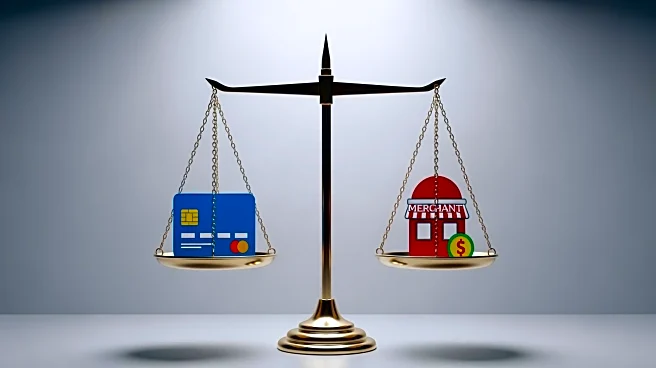What's Happening?
Visa and Mastercard have reached a settlement with U.S. merchants to resolve a protracted dispute over swipe fees, which are charges levied on businesses for processing credit card transactions. The agreement aims to lower these fees, providing merchants with more
control over card acceptance. Despite the settlement, retailers and restaurants have expressed dissatisfaction, arguing that the deal does not sufficiently address their concerns. The settlement follows years of legal battles over allegations that Visa, Mastercard, and banks conspired to violate antitrust laws.
Why It's Important?
The settlement is crucial as it addresses a major cost component for businesses, potentially affecting consumer prices and the competitive landscape in the financial sector. By reducing swipe fees, merchants could lower operational costs, which might translate into savings for consumers. However, the dissatisfaction among retailers suggests ongoing tensions and challenges in achieving a balance between merchant interests and credit card company policies. The outcome of this settlement could influence future negotiations and regulatory approaches in the financial industry.
What's Next?
The settlement awaits court approval, which will determine its implementation and impact on the retail and financial sectors. If approved, merchants will have increased flexibility in card acceptance, potentially leading to changes in consumer payment options and pricing strategies. The response from retailers and restaurants will be crucial in shaping the settlement's effectiveness and future industry standards.
Beyond the Headlines
The settlement highlights broader issues of power dynamics between large financial institutions and smaller businesses. It raises questions about the fairness and transparency of fee structures, potentially prompting further scrutiny and regulatory intervention in the financial sector.
















